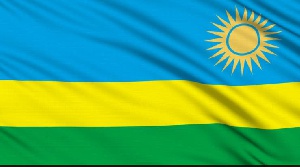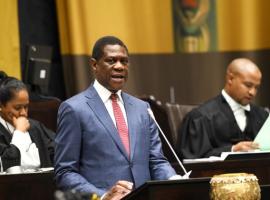
KIGALI, May 27 (NNN-ALLAFRICA) — Rwanda has become the first African country to submit a new national climate plan, whose implementation requires $11 billion, as an essential tool to implement the Paris Agreement.
The Paris Agreement, signed in 2015, aims to limit global warming to 2 degrees Celsius with an ambition to contain any increase at below 1.5 degrees.
The updated pledges to fight climate change are being submitted ahead of COP-26.
The 26th session of the Conference of the Parties (COP 26) to the United Nations Framework Convention on Climate Change (UNFCCC) is planned to take place on Nov 9-19, 2020, in Glasgow, UK.
According to the submitted new climate plan to fight climate change through 2030, the total estimated cost for mitigation measures is estimated at around $5.7 billion, and over $5.3 billion for adaptation priorities, representing a combined funding requirement of around $11 billion.
Rwanda’s mitigation contribution seeks a 38 percent reduction in gas emissions equivalent to 4.6 million tonnes of carbon dioxide in 2030.
The emissions that include gases carbon dioxide, methane nitrous oxide, and hydrofluorocarbons are from the sectors of energy, industrial processes and product use, waste, and agriculture, forestry and other land use and others.
And 24 adaptation interventions are proposed in eight sectors of water, agriculture, land, and forestry, human settlement, health, transport, and mining.
“The Government of Rwanda will continue to commit significant resources to climate change relevant strategies. Rwandan communities, the private sector, and NGOs can also contribute significantly to these climate change-related activities through public-private partnerships,” reads part of the new climate plan.
It also says that the Rwanda Green Fund (FONERWA), will continue to play a vital role in financing low carbon projects and programs.
However, the full implementation of the strategic mitigation actions are conditional on the support of international stakeholders.
“The implementation of the prioritized policies and actions assume the continued use of existing and planned national and international financial sources. Rwanda intends to meet its conditional contribution through the use of climate finance and international market mechanisms where appropriate, building upon the experience of the Clean Development Mechanism (CDM) and other existing market mechanisms,” says the report.
These, it says, include the potential involvement in international cooperative approaches under Article 6 of the Paris Agreement.
The Agreement is a comprehensive framework for action on climate change, guiding the steps all nations will take to reduce their contribution to global warming.
The Agreement also includes the provision for the US $100 billion per year of climate finance and technology transfer to support developing nations to deal with the impacts of climate change and make the transition to a green economy.
Rwanda is already experiencing the impacts of a warming planet, including increased and longer droughts and more frequent and severe floods leading to landslides and therefore needs climate finance for mitigation and adaptation.
Since the 1970s, the average temperature in Rwanda has increased by 1.4°C.
If no substantive action is taken to mitigate global climate change, it is predicted that the average temperature in Rwanda will rise by 2.5°C by the middle of the century. — NNN-ALLAFRICA




